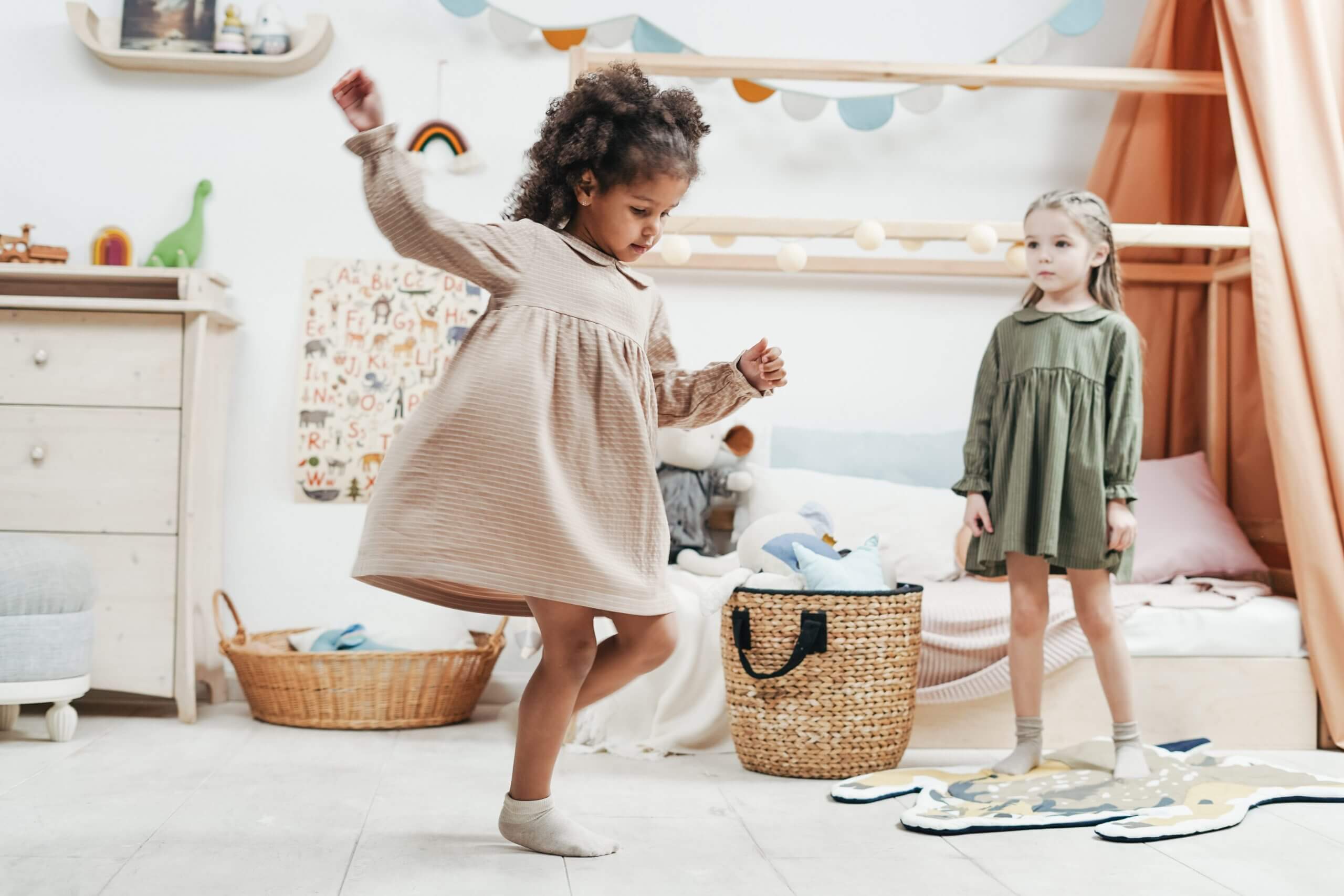Why Intentional Play Makes All The Difference
Change.
It’s the one thing you have faced time and time again this past year.
And gosh, it’s hard.
For you, as a parent and caregiver.
And for your kids.
You’re feeling it. Exhausted. Fed up. Bone tired.
And your child is, too.
Acting out. Yelling. Bursting into tears.
So many tears.
And all the while, you second guess yourself. The worry, the tantrums, the extremes. You were not prepared for this.
Parenting during a pandemic. It’s an extreme sport.
The good news? Even 15 minutes a day of play and games will help you both.
“Play not only provides opportunities for fostering children’s curiosity, self-regulation skills, language development, and imagination but also promotes the dyadic reciprocal interactions between children and parents, which is a crucial element of healthy relationships. Play can serve as an antidote to toxic stress.”
‒ American Academy of Pediatrics, Pediatrics Journal
Play is therapeutic. For you and your child.
So we’re pulling back the curtains and sharing our specialists’ top picks for trusted games to help your child develop more self-control.
What is Self-Control?
According to Oxford Languages, the definition for self-control is “the ability to control one’s emotions and desires or the expression of them in one’s behavior, especially in difficult situations.”
In other words, it’s the ability to stop and think so that we can make good choices. And it’s something parents often say their child struggles with.
Think back to those first days with your child. All tiny toes, snuggles, and baby smells. Ah, those were the days.
Remember how dependent your newborn was on you? If she was hungry or uncomfortable in any way, her immediate reaction was to cry out. Yes, it was the cutest, sweetest sound you had ever heard.
But wow, those nights were long. And you thought they might never end.
Your infant didn’t have the ability to regulate her emotions. As cute as he was, he couldn’t just tell you what he needed ‒ and that’s hard as a parent.
And your toddler? She struggles to express herself, too. One moment she’s playing quietly, content and fully engaged. The next, she’s melting down, with big crocodile tears dripping from her beautiful eyes.
Toddlers struggle to express themselves adequately and clearly, so they throw things and have big emtions. They are in the thick of it ‒ and so are you ‒ as they learn to gain self-control.
Self-control is the ability to take one’s emotions and express them in a way that gets his or her needs met.
It’s a learned behavior, one developed during childhood.
And it’s our responsibility, as care-takers, to nurture and help our children develop more and more self-control as they grow.
How To Cultivate Self-Control In Your Child
There are many ways to develop self-control in your child, but one of our favorites is with games. Yes, games.
Games involve both strategy and self-control while being fun, interactive, and engaging. They keep your little one’s attention, as well as yours. A win-win in this digital age.
Sometimes games are just for fun ‒ but if we plan accordingly, it can be purposeful play. We can play with the intention to build and practice real-life skills.
Good communication is key here. At the start or end of play, review what self-control is. Give an example from your own life, something you experienced, and translate it into a situation your child may encounter.
For example, have you ever struggled with not putting an extra slice of pizza on your plate? Translated for your kids, it could be something like not sticking her finger in the frosting or blowing out the candles on someone else’s cake. We’ve all been there.
In your child’s life, self-control is a daily struggle. There are so many temptations.
But making connections and applying strategies to everyday situations will increase your kiddos’ awareness of when they need to use self-control and keep them on the right track.
Want some help selecting intentional activities, so you can practice this new approach? Here’s a list of our go-to (and fun!) games.
Four Games to Boost Self-Control in Children
Red Light, Green Light
This is a fun, easy game to play. And it encourages focusing both the eyes and ears. You can play with just two players or a bigger group. It also can easily be played with your older children.
Red Light, Green Light: Kids move after “green light” is called and freeze when “red light” is called. If a child is caught moving during a “red light,” they’re out. The first child to touch the leader or get to a specified area wins.
And if playing with just one child, see how long it takes for her to reach you. Go back to the starting point each time she is caught moving during a red light.
Or make up your own rules.
If you want to amp it up a bit, try Freeze Dance. It’s the same premise, but with music. While the music is playing, dance. When it stops, freeze.
Try playing these games with a larger group, and you’ll see more of a challenge when your child is tempted by others’ movements.
Remember to practice proper social distancing.
And for more fun, try a gameboard approach.
Chuckle & Roar Red Light Green Light – Preschool Racing Game
Simon Says
Yes, it’s a classic. And with good reason. Simon Says will have everyone practicing their self-control and attention skills while staying active.
Simon Says: One person is the leader and calls out the actions. Everyone else must follow the leader and do the action, but only when Simon says. For example, “Simon says, hop on one foot.” Everyone must hop on one foot.
The leader tries to get everyone to do an action without saying, “Simon says.” If someone does the action and the leader did not say “Simon says”, that person is out of the game. For example, if the leader says just “clap your hands” or “stop” and someone obeys, they are out of the game.
Switch leaders and have fun.
Jenga
Be prepared for noise. Lots of noise. And silence, as your child focuses to remove a piece. But be prepared, it’s complete chaos (and smiles!) when the tower falls.
Jenga: It’s all about self-control and focus as you work to remove small blocks from a tower and build a higher tower, all without having it tumble.
While you play, reinforce the basic foundation of self-control with each turn. As you take your turn, pause, think, and evaluate your strategy. Your child is watching and will model your behavior. They will mimic your careful, thoughtful movements and still attitude.
Pro tip: It’s a game that can be practiced solo as your child prepares for the next family game session.
Jenga Giant – Family Edition Game by Hasbro Gaming
Blurt!
Ready for more advanced fun? Try Blurt!, a word racing game.
Blurt!: Get to the finish line first in this boisterous board game. To play, players listen to a definition, then race to shout out the right word. The object of the game is to “blurt” out the correct word to advance on the game board.
You can switch things up depending on how many players you have. You can have a duel, try to beat a clock and blurt out as many words as possible within a certain time frame, or have others remain silent as you only allow one person to “blurt.”
Remaining silent and not blurting out while waiting for your turn is an ultimate challenge!
This is especially challenging for kids who, well, blurt out!
And a bonus, your child is building his vocabulary and word recall (without even realizing it!).
Pause Before You Play
As an adult, as a human being, you have a lot on your plate. A lot.
And stress. Hello, 2021.
A quick look at your ever-growing to-do list will remind you of that. But here’s the thing. Your child, she’s not responsible for it all. She doesn’t know why you’re stressed or worried or burnt out. And she shouldn’t.
All she wants from you, right now, is connection. Eye contact and smiles and, well, you.
So take a moment to pause. To breathe in. And exhale. And breathe in again, deeper this time. And exhale. Settle in. Because these moments, these are the moments that matter. The ones she’ll remember for years to come. The ones she’ll duplicate with her own child one day.
As you begin to play, promise yourself you’ll be kind. To yourself and to your kids. Encourage them. Connect with them.
And have fun.
You deserve it. And so does your child.
Please remember, you’re not in this alone. We are here for you, with a professional team of caring, licensed specialists. If you need additional help, reach out. Having a support system you can rely on will help your child flourish. And boost your confidence as a caretaker.
Beyond Speech Therapy Specialists transform lives and help children voice their thoughts. As their name suggests, they go beyond speech. With their team of licensed clinical social workers, they provide speech, social-emotional, and behavioral therapy to support the rollercoaster sometimes experienced with child development.
For you and your child, they offer hope and confidence. Located in the Southwest Suburbs of Chicago, Illinois, their team serves you with in-home visits. They are professional, flexible, and focused on working with your unique child with the goals you’ve set together.
Carrie Marrone, Laura Walsh, Jill Olszta, and Katie McEnery are their founding members.
To learn more and to schedule a visit, go to beyondspeech.co.
Sources:
The Power of Play: A Pediatric Role in Enhancing Development in Young Children

